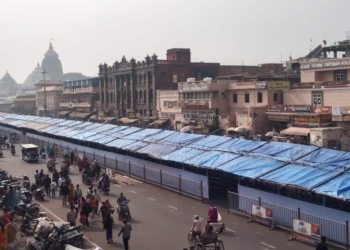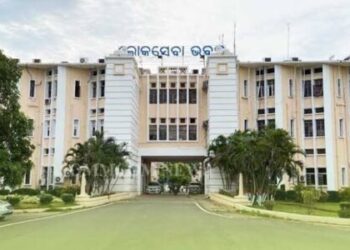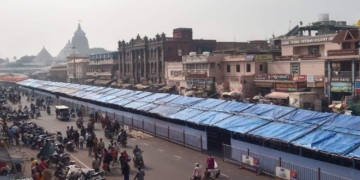Odisha’s Chief Secretary, Manoj Ahuja, conducted a high-level review meeting today at Lok Seva Bhawan to assess the ongoing diarrhoea outbreak affecting Jajpur, Keonjhar, Bhadrak, Cuttack, and Dhenkanal districts.
The meeting, attended virtually by district collectors and led by Health & Family Welfare Commissioner-cum-Secretary Ashwati S., highlighted a significant decline in cases, signalling the effectiveness of the state’s proactive measures.
The Health Secretary reported that the state has implemented extensive preventive strategies, including widespread awareness campaigns, rigorous water source disinfection, and enhanced medical interventions. “The number of patients is steadily decreasing, with milder symptoms observed in new cases,” Ashwati S. noted. She credited early hospital visits, spurred by public awareness, as a key factor in controlling the outbreak.
As of today, 429 new hospital admissions were recorded across the five districts, with 284 patients discharged after recovery. Currently, 370 patients remain under treatment, with strict protocols ensuring no patient is discharged without medical clearance. In Jajpur alone, 64 new cases were reported, with 45 recoveries and 210 patients still under care. The state has distributed over 40 lakh halogen tablets, 6 lakh ORS packets, 400 packets of bleaching powder, and 3.4 lakh doxycycline tablets in Jajpur to combat the outbreak.
The outbreak, identified on June 10 by the Integrated Disease Surveillance Programme (IDSP), is suspected to be linked to contaminated water or food, possibly from local feasts. A central health team confirmed that the situation does not qualify as an epidemic, as cases are localised and not spreading between regions. However, the monsoon season’s propensity for waterborne diseases has prompted heightened vigilance.
Chief Secretary Ahuja emphasised sustained efforts, stating, “Even though infection rates are declining, we must continue aggressive water purification and awareness campaigns to prevent fatalities.” He directed collectors to ensure adequate chlorine supplies, monitor water quality, and intensify loudspeaker-based awareness drives at the village level. Special attention is being given to areas near rivers and drains, where contamination risks are higher.
The state has established 24/7 control rooms in affected districts, with a state-level committee conducting daily reviews. Grassroots workers, including ASHA and Anganwadi staff, are working tirelessly to educate communities and ensure early detection. “The situation is under control, but we cannot let our guard down, especially with the monsoon season ahead,” Ahuja warned.
Tragically, 11 deaths have been reported across the districts, attributed to contaminated water or food, poor sanitation, and delayed medical attention. To prevent further casualties, the state is focusing on timely treatment and robust sanitation measures. Authorities have also advised residents to avoid consuming untreated water and to report symptoms promptly.
The state’s response has been comprehensive, with ongoing water source disinfection and public awareness campaigns rolled out across all districts, not just the affected ones.
The Health Secretary assured that every patient receives proper care, with hospitals equipped to handle the caseload.
As Odisha braces for the monsoon, the government’s proactive measures aim to safeguard public health and prevent future outbreaks.






























